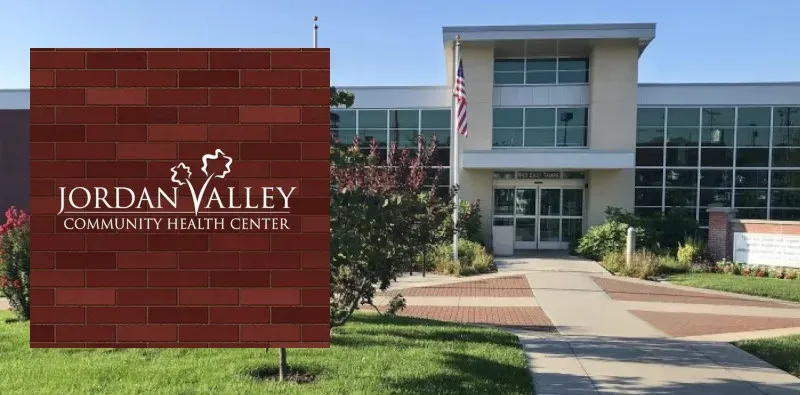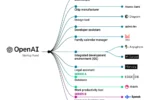The Community Health Center data breach has sent shockwaves through the healthcare sector, revealing vulnerabilities that can jeopardize patient safety and privacy. Recently, this Connecticut-based nonprofit healthcare provider confirmed that cybercriminals accessed sensitive information belonging to over a million patients. The breach, which was detected on January 2, involved a ‘skilled criminal hacker’ infiltrating their network on October 14, 2024, leading to concerns about patient data theft. This healthcare data breach raises alarms about the growing threat of CHC cyberattacks, particularly in an age where digital security is paramount. As details continue to emerge, the implications for both patients and the healthcare industry are profound, underscoring the urgent need for enhanced cybersecurity measures against Connecticut hackers and similar threats.
In recent times, the alarming rise of healthcare data breaches has become a pressing concern for nonprofit healthcare providers. The infiltration of sensitive patient information at a Connecticut community health facility highlights the increasing frequency of cyberattacks targeting medical organizations. Such incidents not only threaten the confidentiality of personal health records but also expose the weaknesses in the systems meant to protect them. With hackers gaining access to critical data, the repercussions of these breaches can be detrimental to patient trust and safety. As stakeholders in the healthcare industry grapple with these challenges, it becomes essential to explore robust strategies to mitigate the risks associated with nonprofit healthcare cyberattacks.
Understanding the Community Health Center Data Breach
The recent Community Health Center data breach has raised significant concerns over the security of patient information within nonprofit healthcare organizations. This incident, which affected over a million patients, was reported by CHC after they detected unauthorized access to their network on January 2, 2024. Such breaches are becoming increasingly common, highlighting vulnerabilities in healthcare systems that handle sensitive patient data. The breach, attributed to a skilled criminal hacker, underscores the urgent need for enhanced cybersecurity measures in the healthcare sector.
As a Connecticut-based nonprofit healthcare provider, CHC serves a diverse population, offering vital services such as school-based healthcare and substance abuse programs. The loss of confidential patient information, which includes personal details like addresses, Social Security numbers, and health insurance information, can have devastating effects on individuals. The organization’s commitment to providing care may be compromised as they navigate the repercussions of this healthcare data breach, focusing on rebuilding trust with their patients.
The Impact of CHC Cyberattack on Patient Trust
The CHC cyberattack has not only jeopardized the privacy of over a million patients but has also shaken their trust in the healthcare system. Patients expect their sensitive information to be safeguarded by the organizations they rely on for care. With reports of hacking incidents on the rise, including the alarming trend of patient data theft, individuals may question whether their healthcare providers can adequately protect their personal information. This loss of trust can lead to patients hesitating to seek necessary medical services, fearing further exposure of their data.
Moreover, the ramifications of the CHC cyberattack extend beyond immediate patient concerns; they can affect the broader community’s perception of healthcare providers. Nonprofit organizations, such as CHC, often operate on a foundation of community trust and goodwill. When a cyberattack occurs, it can undermine years of relationship-building efforts, making it crucial for CHC to take immediate and transparent actions to address the situation. Engaging with the community and providing clear communication about the breach and the steps taken to mitigate future risks is essential in restoring confidence.
Preventing Future Healthcare Data Breaches
In light of the Community Health Center data breach, healthcare organizations must prioritize cybersecurity to prevent future incidents. Implementing robust security protocols, regular audits, and employee training on recognizing phishing attempts are essential steps in fortifying defenses against cyber threats. As Connecticut hackers and other cybercriminals continue to exploit vulnerabilities in healthcare systems, the sector must adopt a proactive stance to safeguard patient data. This includes investing in advanced cybersecurity technologies and engaging in collaborative efforts with other healthcare entities to share insights and strategies.
Additionally, healthcare providers should consider establishing incident response plans to ensure swift action in the event of a breach. These plans should outline clear procedures for identifying, containing, and mitigating the impact of cyberattacks. By fostering a culture of cybersecurity awareness among staff and prioritizing the protection of patient information, organizations can significantly reduce their risk of experiencing a healthcare data breach. Ultimately, a commitment to continuous improvement in cybersecurity measures is necessary to protect the integrity of patient data and maintain public trust.
The Role of Nonprofit Healthcare Providers in Cybersecurity
Nonprofit healthcare providers like the Community Health Center (CHC) play a crucial role in delivering essential services to vulnerable populations. However, they also face unique challenges in maintaining cybersecurity due to limited resources and funding. Despite these constraints, it is imperative for nonprofit organizations to prioritize cybersecurity initiatives to protect against potential threats. By understanding the specific risks associated with their operations, they can implement tailored strategies that address their vulnerabilities without compromising their mission.
Collaboration among nonprofit healthcare providers can enhance cybersecurity efforts by sharing best practices and resources. Establishing partnerships with technology firms and cybersecurity experts can provide nonprofits with access to advanced solutions that may otherwise be financially unfeasible. Furthermore, engaging in community awareness campaigns about the importance of data protection can empower patients and staff alike. By fostering a culture of security within the organization, nonprofits can better safeguard against the rising tide of cyberattacks targeting the healthcare sector.
Analyzing the Response to the CHC Cyberattack
The response to the CHC cyberattack will be critical in shaping the organization’s future and determining the level of trust that patients will place in it moving forward. Transparency is key; CHC must communicate openly with affected individuals about what information was compromised and the steps being taken to mitigate the damage. This includes offering support, such as credit monitoring services, to help patients protect themselves from potential identity theft resulting from the breach.
Moreover, CHC should actively engage with state and federal authorities to ensure compliance with regulations and to help inform broader discussions on healthcare cybersecurity policies. Collaborating with cybersecurity firms to conduct a thorough investigation of the breach will also be essential in identifying weaknesses within their existing systems. By taking decisive action and demonstrating a commitment to patient safety, CHC can begin to rebuild trust and set a precedent for how nonprofit healthcare organizations handle similar situations in the future.
Legal Implications of the Community Health Center Data Breach
The Community Health Center data breach raises significant legal implications for the organization. As healthcare providers are mandated to protect sensitive patient information under laws such as HIPAA (Health Insurance Portability and Accountability Act), any failure to do so can result in severe penalties. CHC must navigate potential lawsuits from affected patients who may claim negligence or a lack of adequate security measures. Furthermore, regulatory bodies may impose fines or sanctions if the organization is found to have violated data protection laws.
In response to the breach, CHC should consult with legal experts to understand their obligations and potential liabilities. This includes reviewing contracts with third-party vendors and ensuring that all partners comply with the necessary security standards. Proactively addressing these legal concerns not only mitigates risk but also demonstrates to patients that CHC is taking the breach seriously and is committed to safeguarding their information in the future.
The Importance of Patient Education in Cybersecurity
In the wake of the Community Health Center cyberattack, patient education becomes a vital component of overall cybersecurity strategy. Patients should be informed about the importance of safeguarding their personal and health information, as well as the potential risks associated with data breaches. By providing resources and training on how to recognize phishing attempts and secure personal data, healthcare providers can empower their patients to take an active role in protecting their information.
Moreover, ongoing communication about cybersecurity practices can foster a stronger partnership between healthcare providers and their patients. By keeping patients informed about the steps being taken to enhance security and what they can do to help, organizations can build a sense of community and shared responsibility. Ultimately, informed patients are more likely to trust their healthcare providers and engage in open dialogue about their concerns regarding data privacy.
The Future of Cybersecurity in Nonprofit Healthcare
The future of cybersecurity in nonprofit healthcare organizations like the Community Health Center hinges on innovation and adaptation. As cyber threats continue to evolve, nonprofit providers must stay ahead of the curve by investing in the latest technologies and practices to protect patient data. This may involve adopting artificial intelligence and machine learning solutions that can detect anomalies in network activity and respond to potential threats in real time.
Furthermore, collaboration among industry stakeholders, including government agencies, technology firms, and healthcare organizations, will be essential in developing comprehensive cybersecurity frameworks tailored to the nonprofit sector. By sharing information about emerging threats and effective countermeasures, the healthcare community can create a safer environment for patient data. The commitment to continuous improvement in cybersecurity practices will determine how effectively nonprofit healthcare providers can respond to future challenges and protect the sensitive information they hold.
Frequently Asked Questions
What happened in the Community Health Center data breach?
The Community Health Center (CHC) data breach involved skilled hackers who accessed the sensitive information of over a million patients. The breach was detected on January 2, 2024, revealing that the hackers infiltrated the network on October 14, 2024, and stole personal and health information without encrypting or deleting any data.
How did the Community Health Center data breach affect patient information?
The Community Health Center data breach compromised a wide range of patient data, including addresses, phone numbers, diagnoses, treatment details, test results, Social Security numbers, and health insurance information. This healthcare data breach has raised serious concerns about patient privacy and security.
What steps is Community Health Center taking in response to the cyberattack?
In response to the Community Health Center cyberattack, CHC is working with cybersecurity experts to assess the breach’s impact and enhance its network security. They have also notified affected patients and are providing guidance on how to protect themselves from potential identity theft following the patient data theft.
Are there any known suspects behind the Community Health Center cyberattack?
As of now, no major cybercriminal organization has claimed responsibility for the Community Health Center cyberattack. The investigation is ongoing to determine the identity of the hackers involved in the healthcare data breach.
What services does Community Health Center provide to Connecticut residents?
The Community Health Center serves more than 100,000 Connecticut residents by offering a variety of services, including school-based healthcare, substance abuse programs, and other essential health services. Despite the recent data breach, daily operations have not been significantly impacted.
What should patients do if their data was compromised in the CHC cyberattack?
Patients affected by the CHC cyberattack should monitor their financial accounts and credit reports for any suspicious activity. It’s also advisable to consider placing a fraud alert on their credit files and to utilize identity theft protection services to mitigate risks associated with the patient data theft.
| Key Point | Details |
|---|---|
| Organization | Community Health Center (CHC), Connecticut-based nonprofit healthcare provider |
| Data Compromised | Sensitive data of over a million patients, including personal and health information |
| Detection Date | Suspicious activity detected on January 2, 2024 |
| Breach Date | Network breach occurred on October 14, 2024 |
| Nature of Attack | Infiltration by a skilled criminal hacker |
| Types of Compromised Data | Addresses, phone numbers, diagnoses, treatment specifics, test results, Social Security numbers, health insurance details |
| Impact on Operations | No major impact on daily operations reported |
| Claim of Responsibility | No major cybercriminal organization has claimed responsibility for the breach |
Summary
The Community Health Center data breach has raised significant concerns regarding patient privacy and data security. With over a million patients affected, sensitive information was accessed by hackers, highlighting vulnerabilities in healthcare cybersecurity. As CHC continues to investigate the incident and strengthen its defenses, this breach serves as a critical reminder for healthcare providers to prioritize data protection measures to safeguard patient information.






